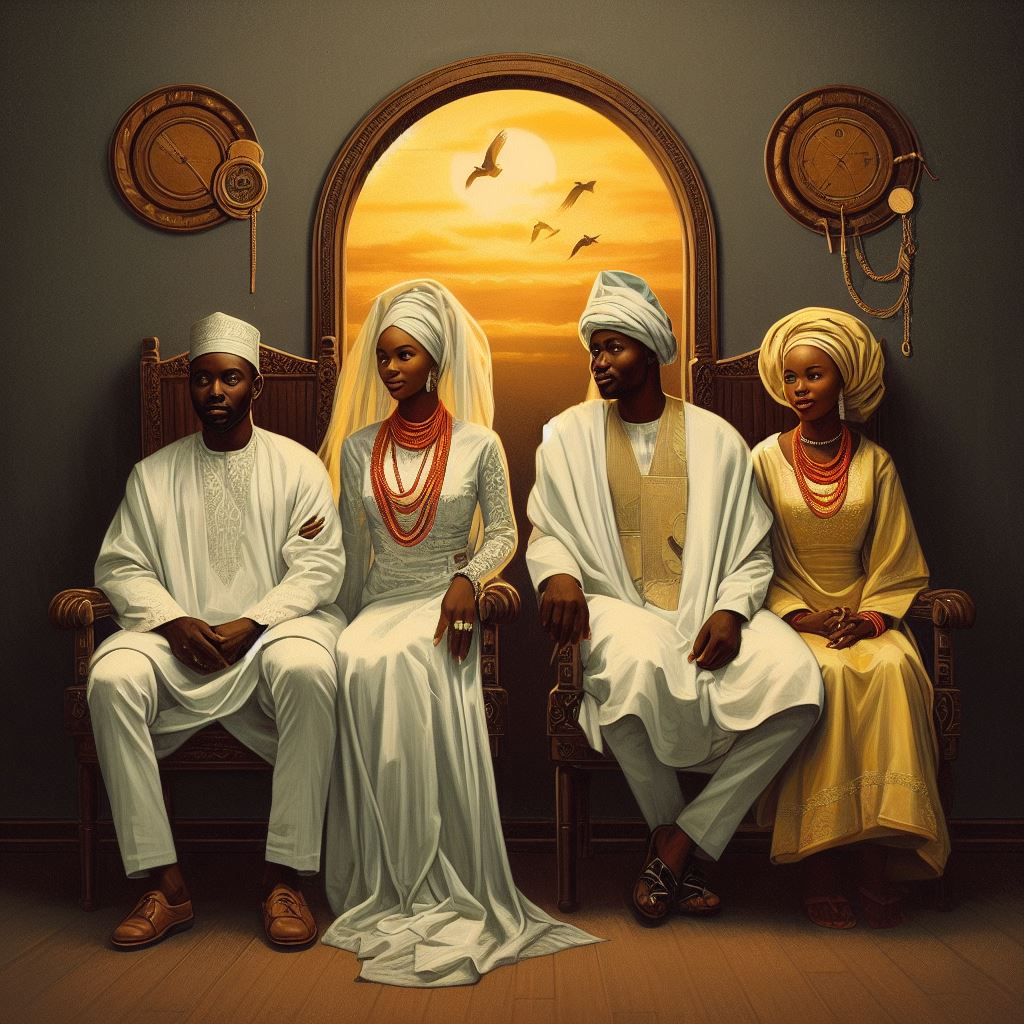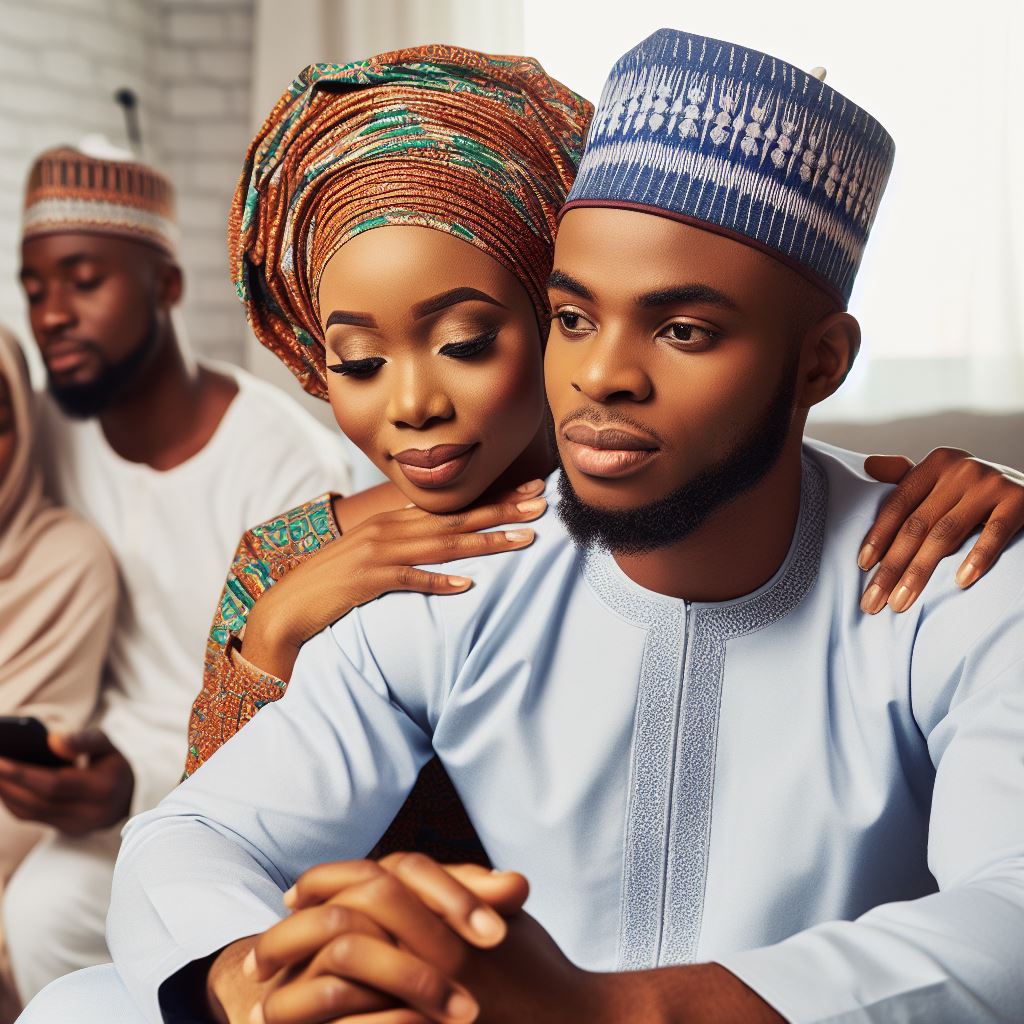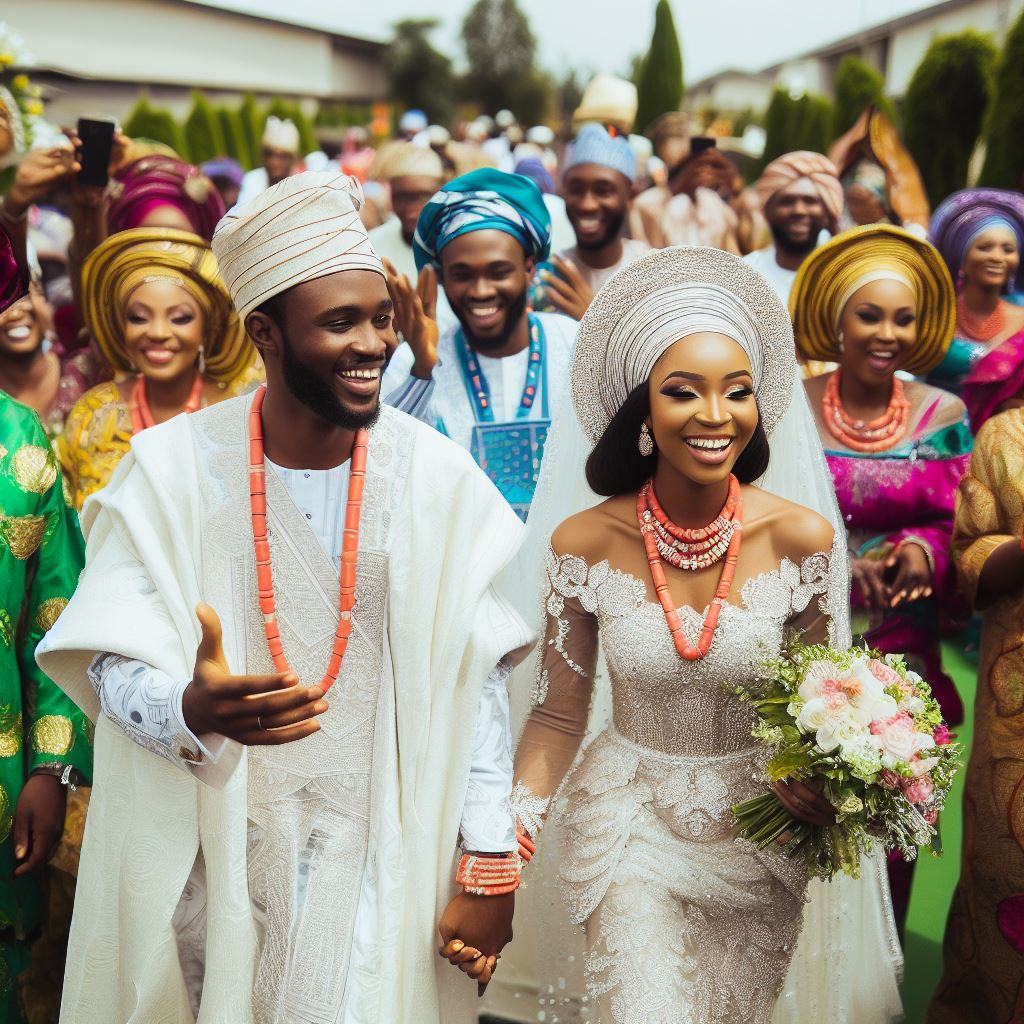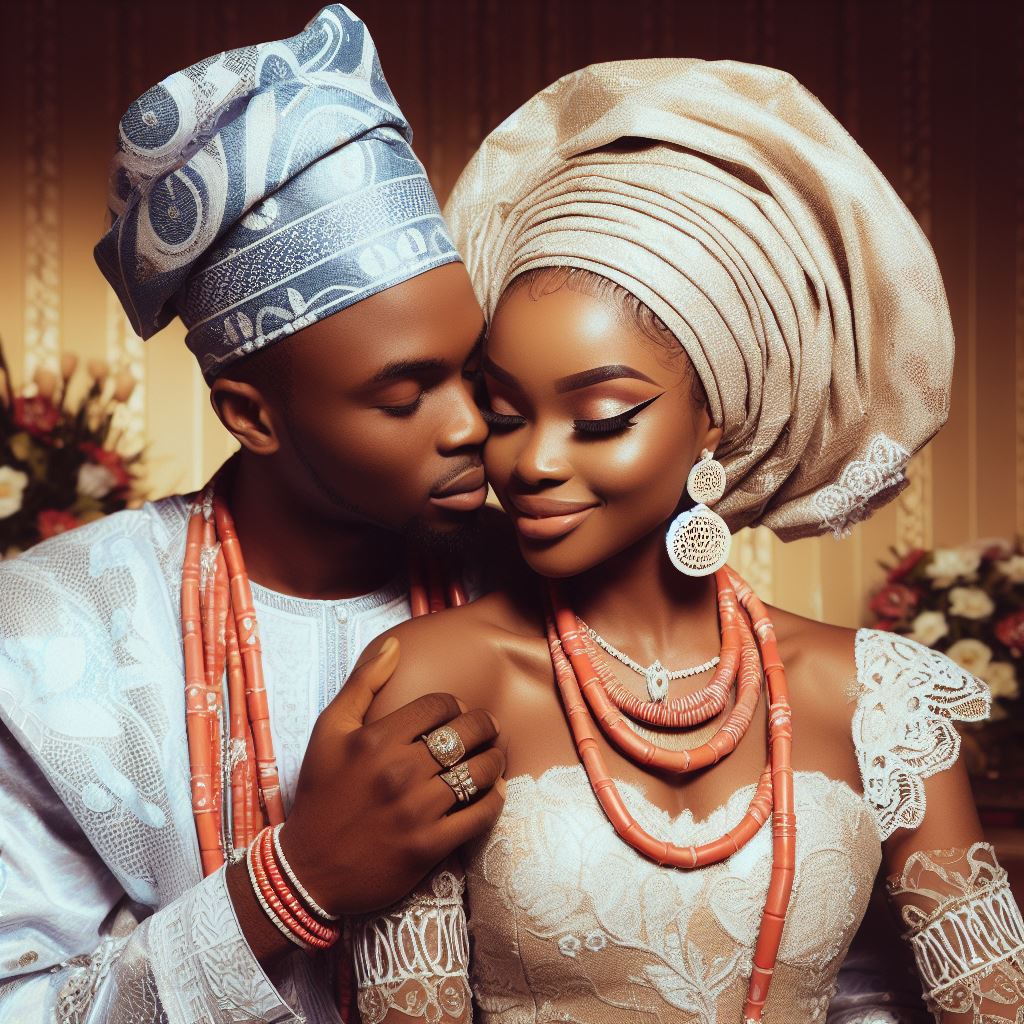Introduction
Marriage counseling aids couples facing relationship challenges, particularly in Nigeria’s diverse cultural setting.
- Nigeria’s cultural landscape shapes beliefs and expectations, necessitating cultural sensitivity in counseling.
- With numerous ethnic groups, each with unique customs and values, cultural factors heavily influence marriage dynamics.
- Marriage counseling must account for cultural nuances like religion, traditions, and family dynamics.
- It’s crucial to understand practices such as polygamy, monogamy, and their impact on relationships.
- Cultural context also affects emotional expression and communication styles in Nigerian relationships.
- Marriage counselors must grasp these cultural intricacies to provide effective guidance.
In short, culturally sensitive marriage counseling techniques enhance couples’ ability to address challenges in Nigeria’s diverse cultural landscape.
Understanding beliefs, values, and practices supports stronger relationships.
Nigerian Cultural Context in Marriage Counseling
Overview of Nigerian cultural values and beliefs
- Nigerian culture is rich and diverse, with over 250 ethnic groups and different languages.
- Core cultural values include respect for elders, communal living, and importance of extended family.
- Religion plays a significant role, with Christianity and Islam being the dominant faiths.
- Traditional beliefs and practices are also prevalent, varying across different ethnic groups.
How Nigerian cultural context affects marriage dynamics and challenges
- Nigerian marriages are often arranged by families, emphasizing the importance of parental consent.
- Gender roles are rigidly defined, with men as breadwinners and women as homemakers.
- Extended family involvement can influence decision-making and create conflicts within the marriage.
- Expectations of marital fidelity and the concept of polygamy can pose challenges in counseling.
Importance of considering cultural context in marriage counseling
- Nigerian cultural context significantly impacts individuals’ values, expectations, and behaviors within a marriage.
- Ignoring cultural factors can hinder effective communication and understanding between the counselor and clients.
- Understanding cultural norms allows counselors to tailor interventions that respect clients’ values and beliefs.
- Culturally sensitive counseling helps address the unique dynamics and challenges Nigerian couples face.
- Including cultural context promotes a more holistic and effective approach towards marriage counseling.
In fact, Nigerian cultural context greatly influences marriage dynamics and challenges in the country.
With diverse cultural values, religious beliefs, and traditional practices, understanding and considering the cultural context becomes crucial in marriage counseling.
By embracing cultural diversity and tailoring interventions accordingly, counselors can better address the unique needs and challenges faced by Nigerian couples.
Read: Gen Z & Millennials: Fears of Marriage in Nigeria
Marriage Counseling Techniques in the Nigerian Cultural Context
Understanding and respecting cultural values and traditions
- It is crucial to acknowledge the influence of family and society in Nigerian marriages.
- Counseling sessions should incorporate cultural traditions to promote understanding and respect.
Effective communication techniques
- Attentive listening and non-verbal cues play a significant role in communication.
- Counselors should encourage empathetic and open communication between spouses.
Addressing gender roles and expectations
- Nigerian marriages face challenges related to gender roles and dynamics.
- Counselors can implement strategies to promote equality and understanding in marital relationships.
Dealing with extended family involvement
- Extended family can have a significant impact on Nigerian marital relationships.
- Counselors can help couples navigate and manage the involvement of extended family members.
In the Nigerian cultural context, marriage counseling techniques must take into account the unique values and traditions that shape relationships.
By understanding and respecting these cultural aspects, counselors can provide more effective guidance to couples seeking help.
Understanding and respecting cultural values and traditions
- It is crucial for counselors to recognize the influence of family and society on Nigerian marriages. Family and societal expectations often play a significant role in shaping the dynamics of a relationship.
By acknowledging these influences, counselors can better understand the challenges faced by couples and tailor their approach accordingly. - Incorporating cultural traditions into counseling sessions is essential. Nigerian couples often find solace and security in cultural practices that have been passed down through generations.
By embracing and integrating these traditions into counseling, therapists can create a safe and comfortable environment for couples to explore their issues.
Effective communication techniques
- Communication lies at the heart of any successful marriage, and counselors must emphasize the importance of attentive listening and non-verbal cues. In Nigerian culture, non-verbal expressions can hold as much significance as verbal ones.
By teaching couples to actively listen and interpret non-verbal cues, counselors can enhance their communication skills and foster a deeper understanding between spouses. - Encouraging empathetic and open communication is another vital aspect of marriage counseling in the Nigerian cultural context. Nigerian couples often face challenges when expressing their emotions openly.
By creating a supportive space, counselors can empower couples to share their thoughts, concerns, and desires, leading to healthier and more meaningful conversations.
Addressing gender roles and expectations
- Gender roles and expectations can significantly impact Nigerian marriages. Traditional gender roles often place unequal burdens and responsibilities on spouses.
Counselors must acknowledge these challenges and help couples navigate their dynamics effectively. - Strategies to promote equality and understanding should be implemented. Marriage counselors can work with couples to challenge traditional gender roles and encourage a more balanced distribution of responsibilities.
By facilitating open discussions and providing guidance, counselors can help couples create a mutually supportive and egalitarian partnership.
Dealing with extended family involvement
- The involvement of extended family members can have a substantial impact on Nigerian marital relationships. In many cases, extended family members have a say in major decisions and may contribute to conflicts within the marriage.
- Counselors can assist couples in navigating and managing extended family involvement. By helping couples establish healthy boundaries and negotiate with extended family members, counselors can mitigate conflicts and preserve the integrity of the marital relationship.
In general, marriage counseling in the Nigerian cultural context necessitates a deep understanding and respect for cultural values and traditions.
By incorporating effective communication techniques, addressing gender roles and expectations, and dealing with extended family involvement, counselors can provide practical guidance to couples seeking to strengthen their marriages.
Read: Avoiding Marriage Fraud: Tips for Genuine US Weddings
Challenges and Solutions in Marriage Counseling within the Nigerian Cultural Context
Common challenges faced by marriage counselors
- Cultural barriers and resistance to counseling: Some Nigerians view counseling as a Western concept that is irrelevant to their own cultural norms.
- Balancing traditional and modern perspectives in counseling: Marriage counselors must navigate the tension between traditional values and modern expectations.
Strategies for overcoming cultural challenges
- Building trust and rapport with clients: Marriage counselors need to establish a strong relationship with clients to overcome cultural resistance and engage them effectively.
- Collaborating with local community resources: Partnering with local community leaders and organizations can help counselors gain cultural insight and support their clients.
Importance of ongoing cultural competence and professional development for counselors
Effective Nigerian marriage counselors must continuously improve cultural understanding and skills. Challenges within the cultural context include:
- Strong traditional values.
- Cultural resistance to Western counseling.
- Balancing traditional and modern perspectives in a diverse country.
To address these challenges, counselors should:
- Prioritize trust and rapport with clients.
- Create safe, welcoming environments for sharing thoughts and emotions.
- Collaborate with local community resources for cultural insight and support.
- Engage with community leaders, religious institutions, and traditional healers.
- Continuously develop cultural competence, updating knowledge about Nigerian practices, values, and beliefs.
Generally, Nigerian marriage counseling encounters cultural challenges.
Building trust, collaborating, and developing cultural competence can overcome them, improving effectiveness within the cultural context.
Read: Inter-State Marriages: Certificates and Legalities
Discover More: Overcoming Past Traumas in a Nigerian Marriage
Case Studies and Success Stories
Real-life examples of marriage counseling in the Nigerian cultural context
- A couple from a traditional Nigerian background facing communication issues sought marriage counseling.
- A married Nigerian couple dealing with infidelity approached a counselor to rebuild trust and intimacy.
- An intertribal Nigerian couple sought counseling to navigate cultural differences affecting their relationship.
Highlight successful outcomes through appropriate counseling techniques
- The couple improved their communication by using active listening techniques and validating each other’s feelings.
- The counselor facilitated a healing process by addressing the underlying causes of the infidelity and guiding forgiveness.
- Through counseling, the couple developed a deeper understanding and appreciation for each other’s cultural differences.
Lessons learned and the significance of cultural understanding in these cases
- The importance of respecting and incorporating Nigerian cultural norms and traditions during counseling sessions.
- Recognizing and addressing the impact of cultural expectations on marital dynamics enhances counseling outcomes.
- Counselors need to be knowledgeable about Nigerian cultural values to provide effective guidance and support.
- Understanding the influence of tribal differences in Nigeria helps counselors tailor interventions accordingly.
- Successful counseling outcomes are more likely when therapists create a safe space for cultural dialogue.
Marriage counseling in the Nigerian cultural context presents unique challenges and opportunities.
Real-life examples demonstrate the efficacy of appropriate counseling techniques in resolving marital conflicts and fostering healthier relationships.
These case studies offer valuable insights into the significance of cultural understanding in achieving successful outcomes.
Read: Blood Group and Rhesus Factor: Their Importance in Pregnancy
Conclusion
It is crucial to emphasize the significance of understanding the Nigerian cultural context in marriage counseling.
Marriage counselors must strive to develop cultural competence to better serve Nigerian couples.
In closing, marriage counseling has the potential to greatly strengthen Nigerian marriages by addressing cultural nuances and fostering healthy relationships.
In the fabric of Nigerian society, cultural nuances profoundly impact marriage dynamics. Acknowledging and integrating these aspects into counseling is paramount:
- Importance of Cultural Context: Cultural sensitivity fosters trust, understanding, and effective communication within marital counseling.
- Call to Cultural Competence: Marriage counselors must actively seek cultural competence to resonate with diverse Nigerian couples.
- Potential for Strengthening Marriages: Embracing cultural context enhances the effectiveness of counseling, offering tailored strategies for lasting marital harmony.
Counselors, embrace the richness of Nigerian culture. Your cultural competence can be the catalyst for resilient, thriving marriages.




